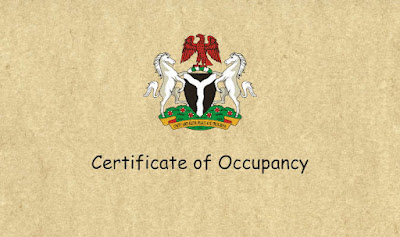7 Key Factors to Consider When Buying a Piece of Land in Nigeria - With Realtor Diamond Bekee
Owning a land is one of the oldest traditional methods of measuring wealth in Nigeria. Although it is now understood that wealth can be determined in many other ways, the value of owning land still holds strong. Some people strive to purchase a plot of land as a goal to achieve before reaching a certain age or retirement, while others may dream of building their own home on their own land as a mark of achievement in their various lives.
At some point in life, it is advisable that you own a land of your own no matter how small. So, when you consider yourself buoyant enough to be your own landlord. One option often considered by a lot of people is buying land to build a house i.e their dream home. Click here to learn more on why you need your own land in Nigeria.
Additionally, for those in the real estate industry, buying land for investment is considered a safe way to generate profits. Click here to learn more about real estate investment and profits.
A lot of consideration has to be in place before buying your dream land, because buying a land does not come at a penny cost. Either it is from your life savings or spare cash, you would want to safeguard your money from fraudsters and at the same time make the best decision on your investment. It is not enough to bank on your relationship with whoever is selling the land, you should be concerned about if it is legit or not. It is in the same vein that you don’t just on buying a land because you like the area, there are certain things to consider as well.
Click here to check current land properties for sale in Nigeria.
However, before making the decision to buy land in Nigeria, it's important to take into consideration a number of factors to ensure that your investment is secure and a wise decision. With the cost of buying land not being insignificant, it's crucial to safeguard your money and make the best investment possible.
Content
Here are seven key factors to consider before buying your next piece of land in Nigeria:
1. Budget:
This is an important factor to consider when buying a land. You need to determine the amount you are willing to spend and ensure that it fits within your budget.
When buying a land, it's important to have a budget in mind. This means figuring out how much you can afford to spend on the land and all the extra costs that come with it.
The budget is the first thing to consider as it guides you on how to make the best use of your funds. You need to do research on the cost of the land and any associated expenses, such as legal fees (5% of the cost of the land), agency fees (5% of the cost of the land), survey plan (which can cost between N100,000 and N300,000), the cost of putting up a fence to secure the land, and the cost of getting necessary documents like Certificate of Occupancy and Governor's consent from the government. Adding all these costs to your budget upfront will help you avoid financial headaches down the road.
Click here to buy lands anywhere in Nigeria without any hidden fee or agency fee involved.
2. Location:
Location is a key factor to consider when buying a land. The value and price of the land depends on its location, for example a land in Gwarimpa would be different from a land in Karshi. It's important to consider the potential growth of the area, think about what the growth of the area will be like in the next 10-20 years. Choosing a strategic location can increase the chances of getting a better value when selling the land in the future. Also consider the proximity to amenities such as schools, hospitals, markets, and other important facilities.
3. Land Size:
When buying a land in Nigeria, it's important to consider the size of the land you want. Consider the size that meets your needs and budget, whether it's a small plot of land or a larger acre. There are different sizes to consider, such as plots, acres, and hectares. It is important to familiarize yourself with these terms in order to determine the appropriate size of the land and avoid being duped.
A plot is a marked piece of land for farming or building, with the recommended size in Nigeria being 50 x 100ft.
An acre is a larger size, equivalent to about 4,046 square meters, and contains 6 plots.
A hectare is the largest size, measuring 100m x 100m, and is equivalent to two and a half acres.
The standard measurements vary across Nigeria and can be affected by factors such as location, possession, and circumstances leading to the transaction. For example, in Lagos, the standard measurement for a plot is 60’ x 120’, while in Edo and Port Harcourt it is 50’ x 100’. It is important to take note of these variations and be aware of any attempts by the seller to deceive you.
4. Land Appreciation:
Consider the potential for appreciation of the land over time. Look into factors that could affect the value of the land such as its proximity to amenities, its size, and location.
Land is a valuable asset that holds its value over time. Unlike other investments that can depreciate, land remains the same if not altered. Investing in land in a developing area, such as rural areas becoming urban areas, can lead to a large return on investment as the value of the land increases with the development of the area. This is why it is important to consider the location when purchasing a land in Nigeria, as the appreciation rate can vary greatly depending on the area. Investing in land is a simple and reliable way to invest in real estate, as the value of land generally does not decrease.
5. Purpose of Buying:
Before buying land in Nigeria, it is important to consider its purpose. Whether it is for commercial or residential use, both purposes require different considerations. Commercial land is for investment purposes, and may be used for renting or selling. Residential land is for building a home and provides stability in terms of housing after retirement.
When buying land, there are several things to consider, including proximity to the market, availability of social amenities, security, serenity, and lifestyle of the area. Proximity to the market refers to the closeness of the land to essential shops and services. Availability of social amenities such as electricity, road access, hospitals, and schools are important to ensure a comfortable living. Security of the area is also crucial, as no one wants to live or invest in an unsafe neighborhood. Serenity of the area is important for residential land, especially for building a peaceful home. Finally, the lifestyle of the area is important for both commercial and residential purposes, and should match the buyer's lifestyle.
6. Necessary Documents:
When buying a land, it's important to ensure that you have all the necessary documents such as title deeds and receipts. This will protect you against any potential fraud.
It is vital you get all the necessary documents to prove ownership. This is because some people may pose as the owner of the land and sell it without having the right to do so. To avoid falling for a scam, you should ask for proof of ownership from the seller. If the seller can't provide enough evidence, it's best to walk away from the transaction. Once you've completed the transaction, make sure to obtain all the necessary documents to avoid future problems with the government or someone trying to claim ownership of the land. In short, having the necessary documents proves your ownership and protects you from fraud or land disputes.
7. Mode of Payment:
Finally, consider the mode of payment when buying a land. This may be a one-time payment or an installment plan. It's important to ensure that the mode of payment is secure and works for you.
It is also important to make sure all payments are properly documented.
Don't pay in cash, as it's harder to track and may lead to losing your money to fraudsters. Instead, use cheques or bank transfers, which can be tracked.
Don't make payment through the agent/realtor's account, make sure you request for the company's account if a real estate company is involved or the owner of the land account.
Engage a lawyer to prepare a purchase receipt and have all parties sign it to acknowledge the payments. This will prevent the seller from denying the exact amount paid, when it was paid, and for what it was paid.
Also, don't rely on trust or relationships with the seller, as relatives or close ones can also deceive you. Finally, when you pay through bank channels, you can use the payment records as evidence in case things go wrong.
In conclusion, buying a land in Nigeria requires careful consideration of a number of factors. From budget and location to purpose and mode of payment, it's important to make an informed decision to protect your investment and ensure a successful outcome.
FEATURED POSTS
7 Factors to consider when buying a plot of land in Nigeria.
Understanding Land Documents In Nigeria Real Estate Industry
All you need to know about Certificate of Occupancy
12 Factors to Consider Before Purchasing Land for Your Dream Home
.jpeg)
.jpeg)
.png)
.jpeg)
.jpeg)


.jpeg)
.jpeg)
.jpeg)


.jpeg)
Comments
Post a Comment